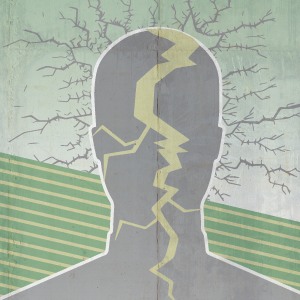
ADDICTIONS: ‘CRACK’-ING OPEN THE MYTHS
Half of all Americans have a friend or family member who is struggling with addiction. In the United States, it is expected that 1 in every 13 people over the age of 12, or roughly 20 million people, will meet the criteria for having a drug or alcohol addiction this year. While the term “addict” often conjures up negative stereotypical images of the poor, unemployed, destitute person, estranged from their family and friends, and looking for handouts to support the addiction, the reality is that “addicts” are not so easy to identify. These stereotypical notions complicate the societal responses to those struggling with addiction and recovery efforts. Addiction impacts all people, all walks of life and is not biased in whom it brings into its clutches; doctors, pilots, classmates and community leaders are all potential prey.
In this Praxis lab, we will deconstruct many of the myths surrounding addiction and explore how such stereotypical notions complicate addiction and recovery efforts. During the first semester, we will address questions like: What is addiction? Is addiction a choice? Do drugs cause addiction? What do drugs really do to our brain? Can addiction be treated? Do people recover? How do we curb the addiction epidemic? We will consider drug and alcohol policy, examine current intervention, treatment, and prevention strategies, consider personal and structural barriers to recovery including stigmatization, and discuss the individual and societal implications of addiction and recovery. By understanding the bio/psycho/social implications and ramifications of addiction we (as individuals and as a society/culture) empower ourselves in potentially responding in a more socially responsible manner. Over the course of this Praxis Lab, we will engage with a variety of perspectives from persons in recovery, addiction psychiatrists, social workers, pharmacists, neuroscientists, and policy makers. Empowered by knowledge gained in the first semester, students will develop and implement a project during the course’s second semester to address an addiction-related issue within the local community.
Faculty
Tiffany Love, Ph.D.
Professor Love is a neuroscientist whose day job involves examining the brain mechanisms responsible for reward. For nearly 20 years, she has used neuroimaging technologies to take pictures of people’s brains and explore how they detect and respond effectively to salient and rewarding events and determine what happens when the neural mechanisms supporting these abilities fail to operate properly. Currently, Professor Love’s research is focused on understanding how the processing of social rewards may be affected by drug use and whether a peptide called oxytocin, commonly referred to as the “cuddle hormone” and considered by some to be a candidate drug for treating addictive disorders, can impact these processes.
When she is not scanning brains or analyzing data, she is teaching a mix of incredibly talented undergraduate, graduate, and postdoctoral students the ins and outs of neuroimaging and social neuroscience. Professor Love is an assistant professor at the University of Utah Department of Psychiatry.
Jerry Buie, MSW, LCSW
Professor Buie has been providing Social Work services since 1994. His work experience includes working for the Department of Corrections, Intermountain Specialized Abuse Treatment (ISAT) Center, Division of Child and Family Services and Olympus View Hospital. In 1996, he organized the State’s first mental Health clinic designed to specifically address mental health issues for the LGBTQ community. As a Clinical Social Worker, he developed treatment programs specific to the LGBTQ community and advocated for quality mental health services for the LGBTQ community while addressing systemic oppression during difficult political times. Professor Buie has presented throughout the State of Utah and nationally on a variety of social work and clinical issues.
Professor Buie is an Assistant Professor/Lecturer at the University of Utah College of Social Work. He teaches classes on Social Work and Diversity Issues/ Reflexive Practice, Ethics and Social Work, Human Behavior in the Social Environment, Clinical Practice, Solution Focus Therapy, Cognitive Based Therapy and Substance Abuse Treatment. He also chairs the Substance Abuse Concentration for the Master’s Program of Social Work. Privately, he provides outpatient care for people in recovery as well as consults for various programs throughout the state of Utah regarding quality clinical care for people in recovery.
